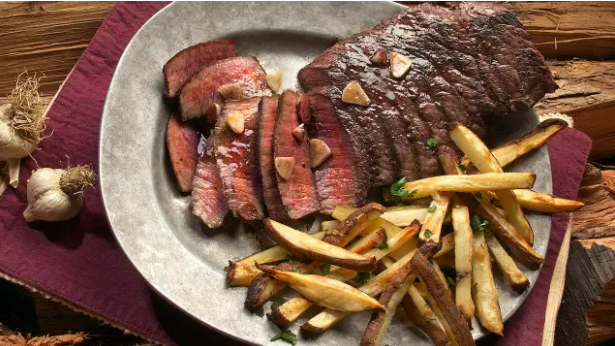“Yes, it’s a sin to eat meat on Fridays during Lent,” said the Rev. Patrick Riviere, director of the diocese’s Office of the Priesthood.
The Church asked Catholics to abstain from eating meat on Fridays during Lent in memory of Good Friday, the day the Bible says Jesus died on the cross, Riviere said.
Meat was chosen as a sacrifice because it was a celebratory food. By abstaining, Catholics can share a common experience in remembrance of Jesus’ sacrifice.
The Courier and Daily Comet asked Catholics on Facebook whether they follow the practice or view not doing so as a sin. The question drew more than 300 responses.
“Catholic teachings tell us to refrain from eating meat on Fridays as an act of penance,” Sheila Wolf LeBouef wrote. “Friday is a day of penitence, as it is believed Christ died on a Friday. Everyone has the right to either eat meat or not. I choose not to.”
“It’s a sin not taking your own spirituality seriously,” Christopher Shane commented. “That you trade red meat for fried shrimp, or boiled crayfish, etc. is a joke, and deep down you know it’s true. Such a luxurious sacrifice doesn’t actually make sense. Being honest with yourself about it is probably a better sacrifice, a sacrifice of hand-me-down traditions, beliefs and social acceptance.”
“I agree with you that it’s better to find an alternate way to honor the sacrifice that Jesus made for all of us if you choose not to follow a traditional path,” Greg Szanyi responded.
“It’s meant to be a form of penance,” wrote Mary Beth Guidroz Gast. “I understand we live in a celebratory culture, but going out to splurge on seafood or eating crawfish isn’t the intention for Lenten days of fasting.”
“I don’t think it’s a sin,” said Christy Walker. “It’s more of a sacrifice. I don’t eat meat on Wednesdays or Fridays during Lent. That’s how my mom was raised, and that’s how she raised us.”
Lent, which began Ash Wednesday, February 17, and ends on Easter, April 4, is a period when Catholics focus on growing spiritually and refocus their faith with God. The three traditional practices Catholics are called to observe during Lent are prayer, fasting and alms-giving, or charity.
Riviere said he personally applies this through prayer, reciting specific devotions to Jesus’ mother, Mary. He reflects on where he sees God in his actions and where he might have turned away from God. On days of fasting, Wednesdays and Fridays, he limits unnecessary screen time and gives to charity or helps people in need.
In a year of hardship, Fabre said penance and self-denial during Lent is still important.
“As we did last year during Lent, I think this season of Lent is another opportunity along with our penitential practices to enter into the coronavirus restrictions from a spiritual perspective and to allow the season of Lent to again speak to our hopes rooted in the risen Jesus Christ,” Fabre said.
Riviere said the pandemic has put Lent in a different light.


